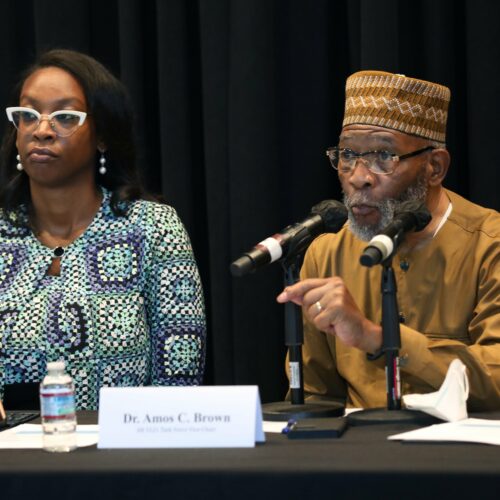Gov. Gavin Newsom’s panel on reparations is projecting that California could pay over $200,000 per person to Black residents to make up for past housing discrimination.
Newsom has aggressively pushed his plan to provide financial reparations to Black Californians whom he says must be financially compensated for decades of discrimination.
CALIFORNIA FACES BUDGET DEFICIT DESPITE NEARLY $100 BILLION SURPLUS LAST FISCAL YEAR
California Gov. Gavin Newsom speaks during a press conference in San Francisco.
(Justin Sullivan/Getty Images)
The California Reparations Task Force says that under the initiative, qualifying Black residents in the state could qualify for $223,200 per person.
The task force drew its ballpark number by examining gaps in housing and speculating the approximate amount of wealth lost between 1933 and 1977. The state panel says that Black Californians lost $5,074 per year under previous housing policies.
BLACK REPARATIONS PANEL COULD DECIDE WHO GETS COMPENSATION

Yolo County, California, includes parts of Sacramento.
(Carol M. Highsmith/Buyenlarge)
Via legislation signed in 2020, Newsom created the task force, which voted in March to limit potential reparations to descendants of free or enslaved Black people in the country at the end of the 19th century rather than all Black people, as many reparations advocates have pushed for.
The report, which runs 500 pages, is the first government-commissioned study on harms against the Black community since the 1968 Kerner Commission report ordered by President Lyndon Johnson, task force Chair Kamilah Moore said.
CLICK HERE TO GET THE FOX NEWS APP

California Gov. Gavin Newsom signing a bill into law.
(AP)
A federal slavery reparations bill, commonly referred to as H.R. 40, has languished in Congress since it was first introduced in 1989. It passed out of the House Judiciary Committee in 2021, but most believe it is unlikely to progress further.





